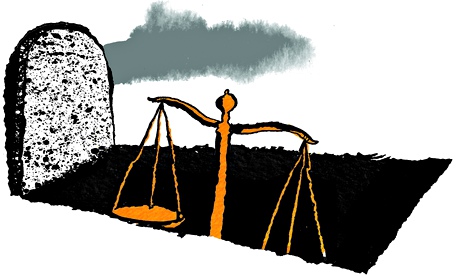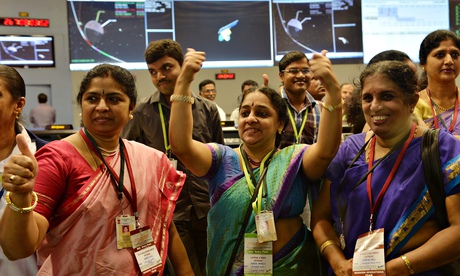The ex-Bosnian Serb leader has been prosecuted, yet the war crimes tribunal resists calls to indict others

There he was, on the other side of the bullet-proof glass: Radovan Karadžić himself, inches away, accused of genocide and other war crimes across Bosnia during the 1990s. He saluted me with an entwinement of avuncular cordiality and cold-like-ice.
This was an “interview” to which Karadžić, defendant at the war crimes tribunal in The Hague, is entitled before his prosecutors called me as a witness, back in 2010. During cross-examination, Karadžić posited the bizarre notion that only ONE person had died in the infamous concentration camp at Omarska it had been my curse to uncover in 1992.
This week, nearly five years after his trial began, come the closing arguments that will lead either to Karadžić’s acquittal or conviction for ordering the hurricane of violence he himself called ethnic cleansing between 1992 and 1995.
If nothing else, the prosecution will serve to remind us that carnage of that kind is still possible in modern Europe: death, torture, mass rape and mutilation in the camps; the siege and torture of a great European capital, Sarajevo; the summary massacre of 8,000 men and boys at Srebrenica. Karadžić has asked for 17 hours to outline his explanation for all this, under his alleged command.
Karadžić was political commissar of the Bosnian Serb project for a racially “pure” state during those years and, along with the verdict on his military counterpart, General Ratko Mladic, the outcome will be the highwater mark of the two-decade enterprise in what was to be groundbreaking international law enforcement by the International Criminal Tribunal for the former Yugoslavia (ICTY).
The man leading the Karadžić prosecution, Alan Tieger, was there at the outset prosecuting its first defendant in 1996, a parish-pump sadist and murderer called Dusko Tadic, now free after serving his sentence.
I was called by the tribunal in the early days, when it was lean, keen and felt right on its side. The court had been established in 1993 through both contrition and ambition. Contrition, because the UN had already become inept and cynical to the point of complicity in the slaughter it now sought to prosecute (though ironically, the worst was yet to come in 1995, when Dutch troops delivered the “safe area” of Srebrenica to the slaughter). Ambition, because the ICTY was seen as putting into action a brave new world of human rights, whereby the bullies of history would be held to account.
A lot can happen to a UN organism in 20 years. I testified in eight trials, have given months of work to the tribunal, and watched it bloat: heard clear language of law and liability replaced by jargon and anagrams; watched communication become a logjam of bureaucracy and hierarchy; listened to the wretched survivors summoned to testify, and wonder how much money was being made in their name. Answer: one hell of a lot.
But more important clouds have gathered over the ICTY. One concerns the promise – oft-spoken and crucial to the Hague’s raison d’etre – that its existence would deter mass murderers of the future. President Assad of Syria shows no sign of such quaking in his shoes.
A second was the tribunal’s extra-judicial brief: that it not only judge those accused, but also promote reconciliation. One of the tribunal’s major achievements has indeed been that the narrative of the war was told from witness chairs during “victim testimony”– the voices of the survivors. But there has been no reconciliation.
Bosnia is a living example, because there has been no reckoning. Reckoning, a prerequisite to reconciliation, is a harsher word which entails coming to terms with the calamity, staring at oneself in the mirror, and making amends – historical, political and material. This has not happened in a land still riven by partition as dictated by the vanities of the Dayton peace agreement, which ended the war by rewarding Karadžić’s project and granting his “Republika Srpska”, where children attend two schools under the same roof, where denial of the massacre at Srebrenica and concentration camps is still de rigeur and a means of maintaining power.
To this reality even 20 years on, the ICTY has added little or nothing: one could argue that more community-level bonding between ethnicities resulted last year from protests against privatisation, flooding, and the qualification of Bosnia’s football team for the World Cup in Brazil.
And doubts raised by recent verdicts have seemed to unravel the ICTY’s own work. Two rulings in the appeals chamber in 2012 and 2013 overturned the crucial convictions of the Croatian general Ante Gotovina and the commander of the Serbian (Yugoslav) army Momčilo Perišić. Chaired on both occasions by Judge Theodor Meron – a Holocaust survivor, former Israeli diplomat and US citizen – a majority of judges ruled that theevidence lacked “specific direction” to the troops under the generals’ command to commit atrocities. In other words, the buck stops short of the top, even when we all know war crimes have been committed.
This was galling for prosecutors because once the dramatic “victim testimony” was entered against small fry like Tadic, the hard, drier, work had been to establish chains of command that connected the political and military leaderships to the atrocities. For instance – in a tip to President Assad – the bench under Judge Meron deemed that to shell a community into the rubble until the survivors flee does not constitute deportation, since the emptying out of population was not “specifically directed”.
There were vehement dissenters from the bench in both cases: but back home, to illustrate the point about reconciliation, Bosnian Croats whooped and celebrated the liberty of Gotovina while spitting their outrage at that of Perišić; Bosnian Serbs did exactly the reverse. One’s own side cannot commit a war crime, it seems – only the enemy – in the land of un-reckoning.
But the most severe doubt about the ICTY, which does not concern its remit so much as its legacy, is who gets prosecuted in the brave new world of human rights. When Archbishop Desmond Tutu wrote in the Observer that former British prime minister Tony Blair should be indicted for war crimes in Iraq, he raised the question: how high are future indictments at the permanent international criminal court or other ad-hoc tribunals like the ICTY going to aim? So far, the ICC has failed to indict a single person who is white. It staunchly resisted calls for an indictment for General August Pinochet of Chile; Blair is not even on its radar screen, for all the archbishop’s pleading.
The questions remain, beyond Karadžić. Why Charles Taylor and not Blair, Bush or the Israeli bomber command that targeted schools in Lebanon and civilian shelters in Gaza? At what point does the ICC address environmental or corporate crime: mining companies before which entire communities in Africa and Latin America vanish, or banks involved in systematic laundering of the profits of drug cartels?
Legal philosopher Costas Douzinas has written a book daring to suggest that “human rights” are becoming tools of the powerful nations, more than sacrosanct principles as defined by his ancestors in Greece, the French revolutionaries and Tom Paine.
It has been a long, worthwhile haul from the Tadic trial to that of Karadžić, and an acquittal over “specific direction” would be grotesque while the earth still gives up its dead around Srebrenica and the camps. But after that, for Douzinas to be proved wrong, the lucrative carousel of international justice needs to raise, not lower, its sights.






